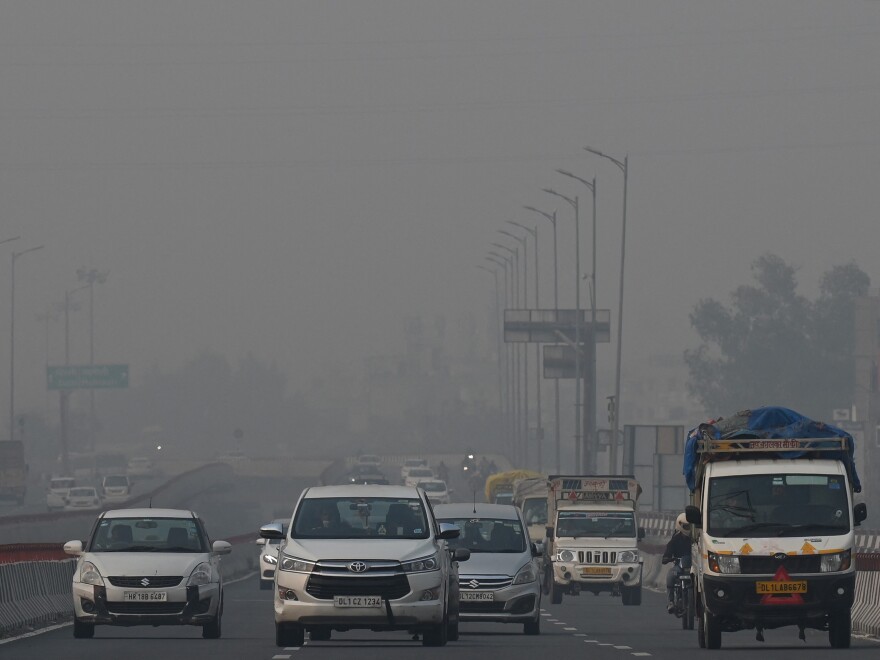NASHIK, India — India's Supreme Court is calling for a lockdown in the capital, New Delhi. It's because of a health emergency, but it's not about COVID-19. It's about air pollution.
At a hearing Monday, justices ordered authorities to halt all nonessential travel on roads in the national capital region. They also told them to close offices in the area, shifting tens of millions of people to work from home.
It's unclear if or when such a lockdown would take effect, or how long it might last. Delhi's air quality appeared to ease slightly Monday. The AQI is now in the low 400s on a 500-point scale. Last week, it was off the charts in some areas.
Delhi's chief minister has indicated his willingness to impose a pollution-related lockdown but has said it would have minimal effect without similar measures from neighboring states. Officials from the states of Punjab, Haryana and Uttar Pradesh plan to hold meetings Tuesday.
New Delhi's schools are already closed this week because of air pollution that's been about four times the safe limit. Construction sites are also on pause, which will ultimately slow the economy.
This is all because of toxic smog across much of northern India. It happens every winter as industrial and vehicular emissions mix with smoke from crop-burning after the harvest.
While farmers have often been blamed for exacerbating the pollution problem, government lawyers told the Supreme Court on Monday that crop-burning amounts to only about 10% of emissions. One justice responded by saying it might be even lower.
Some of the schools forced to shut this week had only just reopened for the first time in nearly 20 months, because of COVID-19.
Meanwhile, India pushed for watered-down language in a final declaration at the U.N. climate summit in Glasgow over the weekend. It ended up calling for coal to be "phased down," rather than "phased out" — a revision that angered some delegates. Choking back tears, the COP26 president said India had to explain itself. But the reaction was different from some media inside India.
One Indian newspaper called the revised language in the COP26 declaration "a major win for India" and its international diplomacy.
India gets about 70% of its electricity from coal. It has pledged to reduce that amount but has pushed back against global efforts to ditch coal altogether. Prime Minister Narendra Modi says India's emissions will be net-zero by 2070 — 20 years after the U.S. and Europe and 10 years after China.
This story originally appeared in the Morning Edition live blog.
Copyright 2021 NPR. To see more, visit https://www.npr.org.




